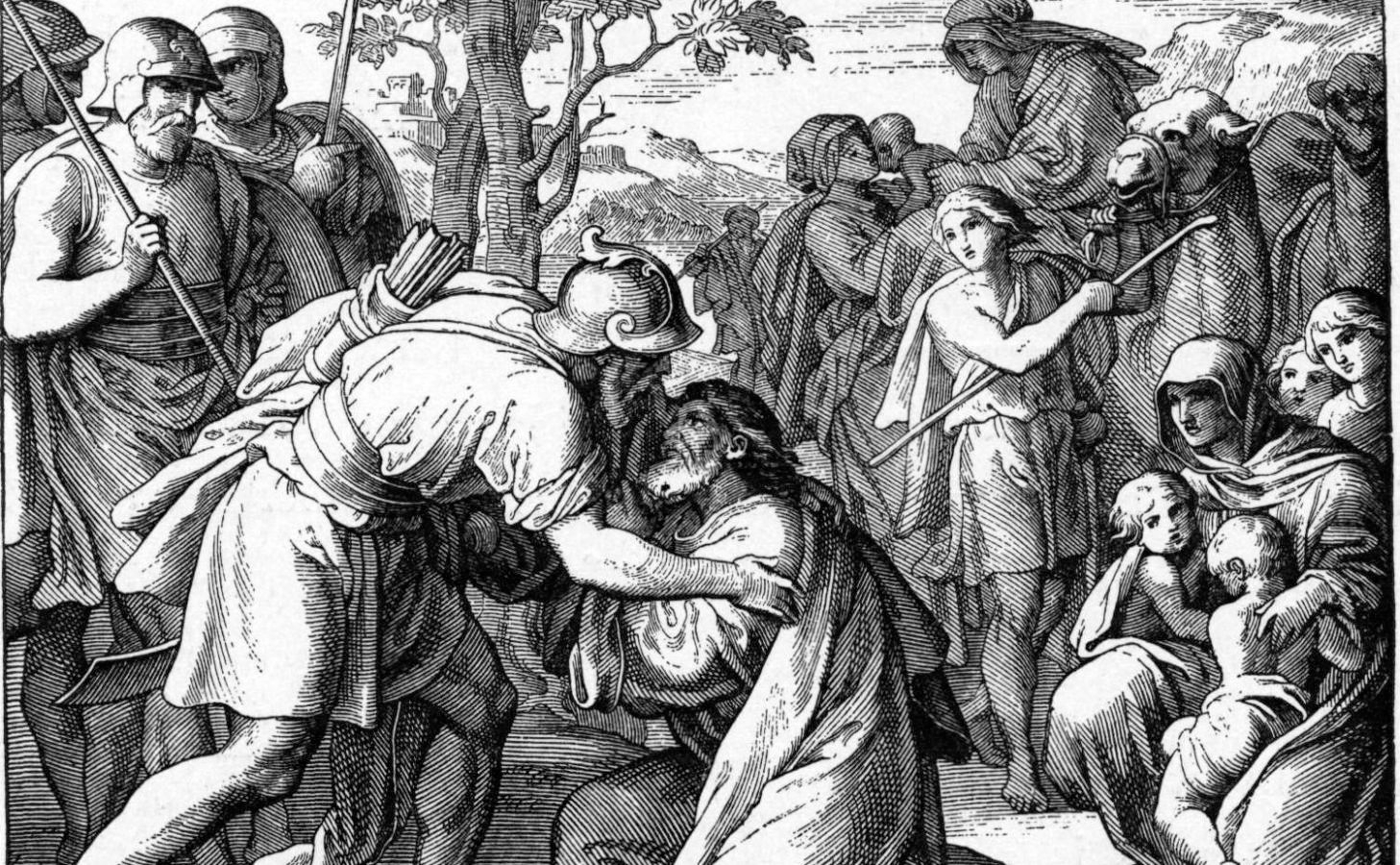Commentary on Parashat Vayishlach, Genesis 32:4-36:43
This portion begins with Jacob‘s reconciliation with Esau. Clearly Jacob is not convinced that such reconciliation is possible, or that it will take place. So he protects his family and his assets by dividing his camp into two, thinking that should he have misjudged his brother, he will not be totally decimated. Jacob realizes the extent of the deception of his brother when they were younger and doesn’t know whether he can make peace with him. And he is totally surprised at the willingness of his brother to forget the past and embrace his brother and the future.
Often those who have had such encounters with members of their family are afraid to attempt reconciliation. They are afraid of being rebuffed even when they know it was they who wronged the other. This is particularly true in cases where our initial response to those family members who have intermarried was rejection.
How We React
Sometimes we recover quickly from an initial reaction but in other cases we are unable to shake free and we let it fester until it seems the relationship is destroyed. Yet when we find the inner courage and strength to reach out to the other, we are surprised to find such reciprocity.
Just as we think Jacob has it right, the story of Dinah is woven into the tapestry of this week’s Torah portion. Some will say that it is out of place, that it perhaps comes from another source document and is ready to point our ways in which it doesn’t fit.

Help us keep Jewish knowledge accessible to millions of people around the world.
Your donation to My Jewish Learning fuels endless journeys of Jewish discovery. With your help, My Jewish Learning can continue to provide nonstop opportunities for learning, connection and growth.
But the Torah’s editor clearly understands the message that the literary device is achieving. Be honest in reconciliation. When a sister or daughter falls in love with someone with another religious background, and when that person–either out of love or the discovery of Judaism–wishes to cast his/her lot with the Jewish people, don’t look for ulterior methods. Warmly welcome him/her. And certainly don’t attack him/her when healing from the decision.
Torah
Pronunced: TORE-uh, Origin: Hebrew, the Five Books of Moses.

Help us keep Jewish knowledge accessible to millions of people around the world.
Your donation to My Jewish Learning fuels endless journeys of Jewish discovery. With your help, My Jewish Learning can continue to provide nonstop opportunities for learning, connection and growth.



